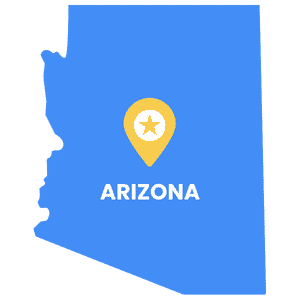Hawaii State Information Page
Current Legality State – Hawaii
Medical
- Medical Program only
- Decriminalized statewide for small possession
- Medical patients can possess four ounces of processed marijuana; recreational possession is illegal.
- Cultivating cannabis is recreationally illegal; medical patients can cultivate a total of ten plants of their own cannabis

Current Legality State
Medical

- Medical Program only
- Decriminalized statewide for small possession
- Medical patients can possess four ounces of processed marijuana; recreational possession is illegal.
- Cultivating cannabis is recreationally illegal; medical patients can cultivate a total of ten plants of their own cannabis
Your cannabis AI assistant
Tailored recommendations for your favorite
Sign up below for early access
*By signing up, you agree to the Terms and Conditions and Privacy Policy.
California residents, see our CA Privacy Notice.
Is Cannabis Legal In Hawaii ?
Hawaii has managed to legalize medical marijuana; however, recreational marijuana laws have not yet caught up. Lawmakers passed Hawaii’s medical marijuana law in 2000 and medical dispensaries were set up in 2015.
State Laws and Offenses
Here’s a list of penalties for Hawaii’s possession, sale, and distribution of marijuana, concentrate, or paraphernalia.
- Marijuana is a Schedule I substance in the state of Hawaii
- Federally, cannabis is still considered a Schedule I Controlled Substance
- Possession of 3 grams or less of marijuana is punishable by a fine of 130 USD.
- Possession of 1 pound or more but less than two pounds is a felony punishable by up to five years in prison and a 10,000 USD fine.
- Distribution of less than one ounce of marijuana is a misdemeanor punishable by up to one year of jail time and a 2,000 USD fine.
- Cultivation of 25 or more but less than 50 marijuana plants is a felony punishable by up to five years of jail time and a 10,000 USD fine
- Use or possession of paraphernalia is a felony punishable by up to five years in prison and a 10,000 USD fine.
Find Hawaii Dispensaries Nearby Find Dispensaries Connect With A Doctor
Hawaii Qualifying Conditions For Medical Marijuana
The following is a list of the most common conditions that qualify for medical marijuana in Hawaii:
- Cancer
- HIV/AIDS
- glaucoma
- PTSD
- rheumatoid arthritis
- lupus
- epilepsy
- multiple sclerosis
- conditions causing one or more of the following: severe pain, cachexia or wasting, severe nausea, seizures, or severe and persistent muscle spasms.
- The health department can approve additional conditions.
- A minor patient only qualifies with parental consent and if the adult controls the dosage, frequency of use, and acquisition of marijuana.
Does Hawaii accept out-of-state medical cards?
Out-of-state patients can get a sixty-day Hawaii medical marijuana card. They can purchase medical cannabis from certified dispensaries in Hawaii as long as they’re certified in the medical cannabis program in their home state.
When does my Hawaii medical card expire?
Your medical card expires 1 or 2 years depending on the patient’s selection upon registration.
Get a Hawaii Medical Marijuana Card
Hawaii marijuana DUI laws
The criminal or civil sanctions for driving under the influence in Hawaii are as follows:
- The first offense is two to five days in jail and up to 1,000 USD fine, a one-year suspended license, 72 hours of community service, and a 14-hour minimum substance abuse rehabilitation program.
- The second offense is five to thirty days in jail with up to 3,000 USD fine, 24 months up to a three-year suspended license, and 240 hours of community service.
Hawaii marijuana growing laws
Hawaii allows a patient with a registry identification card to possess four ounces of processed marijuana and cultivate a total of 10 plants.
Hawaii public consumption laws
All registered patients and caregivers are prohibited from acquiring, possessing, cultivating, using, distributing, or transporting cannabis or paraphernalia in all public places.
These places include:
- Parks
- Beaches
- School grounds
- Bars
- Nightclubs
- Shopping centers
Hawaii city specific laws
The laws listed here are for the state. Cities, counties, schools, universities, and employers may set their own rules and consequences. Be sure to check how marijuana laws differ in each county or town before you use.
How to get a medical marijuana card in Hawaii
These are the steps to getting a medical marijuana card with the help of Leafy DOC
-
Book An Appointment
- You will schedule an appointment to see a medical marijuana doctor in Hawaii at a time that is most convenient for you.
- Provide basic medical history and book your appointment with a licensed medical marijuana doctor.
-
Evaluation
- Consult with a doctor for a quick evaluation of your ailments, and ask any questions you may have about medical marijuana treatment.
-
Approval
- Within 24 hours after the evaluation, the doctor will send your certificate via email for your recommendation for medical marijuana.
- After receiving that recommendation, you can then apply with the state of Hawaii to complete the registration process.

Book your appointment
- Easily make appointment online
- Skip unnecessary doctor office visits
- Provide basic medical history

Match with a Doctor
- Connect w/ the right doctor for you.
- Thorough evaluation via phone or video call.
- Provider will answer any questions.

Get your Medical Card
- Upon Approval you’ll receive confirmation email
- Receive a temporary card or card in the mail
- Enjoy the benefits of being a medical card holder!
Cannabis Policy Reform Timeline
2000: Following the long federal prohibition and the war on drugs led by the Drug Enforcement Administration, Hawaii passed Act 228, the Medical Use of Cannabis Act, making Hawaii the first state to legalize medical cannabis and to allow agricultural or academic research programs.
2013: House Bill 668 was passed to move the medical marijuana program from the Department of Public Safety to the Department of Health and establish a Medical Marijuana Registry fund to help offset the cost of processing and issuing patient identification certificates. Lawmakers also passed act 178 to update language in the Medical Use of Marijuana Act. Registered medical cannabis patients became entitled to possess up to four ounces of usable cannabis and seven plants at any given time.
2015: The legislature passed two bills that further revised the medical cannabis program. House Bill 321 created regulations for eight statewide dispensaries to ensure safe and legal access to medical marijuana for those unable to cultivate their own.
2016: Act 230 updated medical cannabis laws in Hawaii. Legislatures empowered Advanced Practice Registered Nurses (APRNs) with privileges to certify and prescribe to patients.
2017: Dispensaries opened to the public. Governor Ige signed House Bill 1488 into law, increasing the number of plants for qualified patients to ten. The bill added qualifying conditions for rheumatoid arthritis, lupus, epilepsy, multiple sclerosis, and any other debilitating medical condition that the Physician recommends for medical marijuana.
2018: Act 116 revised the medical cannabis law. The act legalized vaporizers for retail in dispensaries, made reciprocity provisions for out-of-state patients, and debated the legalization of manufacturing and dispensing cannabis edibles.
2022: There is an initiative to combine the registry and dispensary programs to form the Office of Medical Cannabis Control and Regulation and to update the state’s existing decriminalization law. There are also over a thousand efforts tracked by the Marijuana Moment to legalize recreational marijuana laws for adults in Hawaii.
Some of the Current Cannabis Bills in Hawaii
- HI SB1429 – Relating To Medical Cannabis.
- HI HB132 – Relating To Expungement.
- HI SB1064 – Relating To Medical Cannabis.
- HI SB1613 – Relating To Cannabis.
- HI HB302 – Relating To Cannabis.
- HI HB1482 – Related To Controlled Substances.
- HI SB319 – Relating To Marijuana.
- HI HB325 – Relating To Medical Cannabis.
- HI HB600 – Relating To The Medical Use Of Cannabis.
- HI HB1390 – Relating To The Medical Use Of Cannabis.
- HI HB953 – Relating To Medical Cannabis.
- HI HB217 – Relating To Marijuana.
- HI HB519 – Proposing An Amendment To Article Ix Of The Constitution Of The State Of Hawaii Relating To Recreational Cannabis.
- HI HB814 – Relating To Cannabis.








